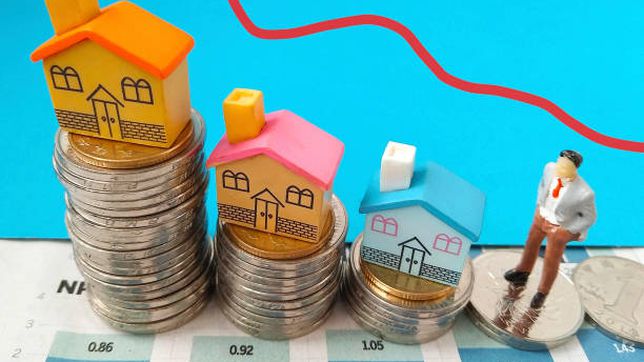
Housing prices have been on a tear since the covid-19 pandemic caused the great American migration. The underlying reasons for the dramatic rise in the cost of buying a house nationwide are many. However, the raising of rates by the Federal Reserve to tackle high inflation has sent mortgage rates climbing as well.
Despite the biggest one-day drop since 1981, a 30-year fixed rate home loan is still double what it was at the start of the year. The higher interest payments coupled with overvalued homes have caused a slump in the sale of existing homes. This is both good news and bad news depending on your vantage point but not as dire as the last downturn.
This time around believed not to be like 2008
House prices rose by 45 percent between January 2020 and June 2022, that’s 15 percent more than the run up to the last housing market bubble. However, this time does not look like it’ll be a repeat of the 2008 housing crash according to experts.
Even so, Mark Zandi, the chief economist at Moody’s Analytics, said if “prices are 5, 10, 15% below where they are today where they’re peaking,” in two years’ time “I’d say that sounds about right to me.” However, he doesn’t see a housing collapse because home prices will be bolstered by a couple fundamentals, supply and improved lending practices. Also, while that seems like a significant amount, when you consider that they will not lose all their gains, people won’t be sitting on a mortgage that is worth more than the house.
Furthermore, unlike the previous housing bust, both bank and household balance sheets are in a better position to weather a downturn. Millions also took advantage of the ultra-low mortgage rates over the past couple years to refinance their loans lowering monthly payments making them easier to service.
Forces that will drive house prices down
The work-from-home policies that were implemented at the beginning of the pandemic allowed the migration of Americans from high-cost areas to lower-cost cities. The ultra-low mortgages helped encourage this movement and an already limited supply of available houses, a result of many builders going bust after the previous downturn when there was an over-supply, saw all markets across the US experience significant rates of appreciation as supply could not keep up with demand.
The increase in prices has now slowed and some of the most overvalued are now beginning to see a correction. According to CoreLogic just over 90 percent of regional housing markets have a greater than 50 percent chance of houses losing value over the next year. Only 1 percent of the biggest housing markets have seen a drop so far.
The rising prices and higher mortgage rates have cooled demand for existing homes with homebuyers priced out, which is behind the deceleration of prices. However, the market is still short on supply and likely to remain that way as builders cut back for lack of demand and homeowners hold onto their cheaper mortgages.
Once prices become accessible again or mortgage rates drop, demand would most likely increase again. Also millennials have reached the age where they are thinking about buying a home which will keep a potential stream of homebuyers creating demand and averting a freefall in prices according to Erik Lundh, an economist at The Conference Board.

 With current mortgage rates at over 6%, the vast majority (99%) of outstanding mortgage debt has a lower mortgage rate locked in
With current mortgage rates at over 6%, the vast majority (99%) of outstanding mortgage debt has a lower mortgage rate locked in




